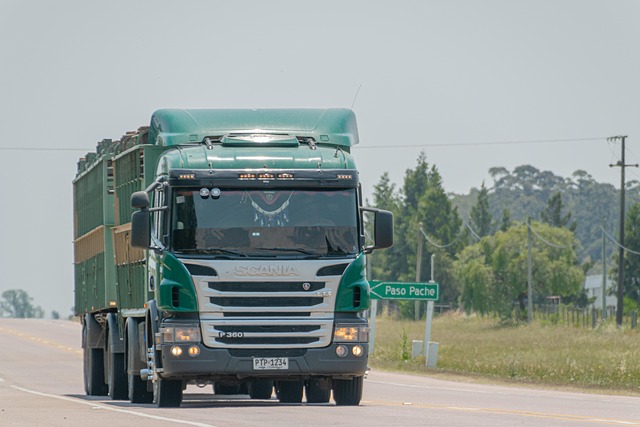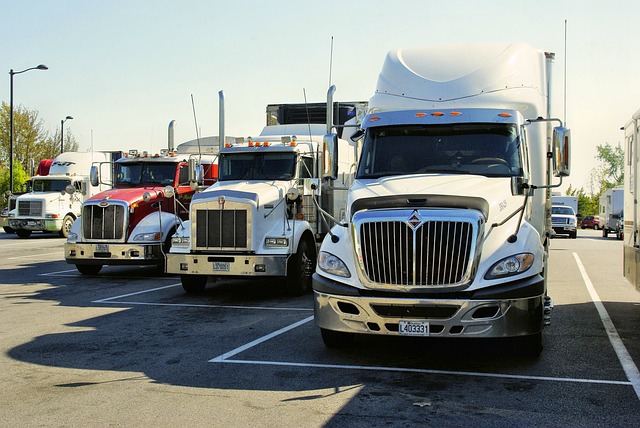Trucking businesses face high liabilities due to various risks like driver fatigue, unsafe maintenance, handling errors, and on-road incidents. Mitigating these risks requires a multi-faceted approach including stringent safety regulations, comprehensive driver training, load securing adherence, regular screening, drug testing, and quality control measures. Effective communication, meticulous documentation, risk assessments, and continuous improvement foster a culture of safety, reduce liability claims, and strengthen defenses. Prioritizing safety through these initiatives is key to success in the trucking industry.
In the dynamic landscape of trucking businesses, mitigating risks is paramount to avoid costly liability claims. This article explores strategic approaches to navigate potential hazards, focusing on understanding common risks, implementing robust safety measures, and fostering effective communication. By delving into best practices for regular risk assessment and continuous improvement, trucking operations can foster a culture of safety, minimizing exposures and safeguarding financial health. Discover actionable steps to enhance resilience against liability claims in this comprehensive guide.
Understanding Common Risks in Trucking Businesses

Trucking businesses face a unique set of risks that can lead to liability claims, from driver fatigue and unsafe vehicle maintenance to cargo handling and on-road incidents. Understanding these common risks is the first step in developing effective mitigation strategies. Many accidents involving trucks stem from human error, such as drivers operating vehicles while fatigued or distracted, leading to increased safety regulations and training programs becoming essential components of risk management.
Additionally, the nature of trucking operations exposes businesses to legal liabilities related to cargo security, proper loading practices, and damage prevention. Ensuring compliance with load securing regulations and implementing robust quality control measures for vehicle maintenance can significantly reduce these risks. Regular driver screening, drug testing, and comprehensive safety training programs are crucial in fostering a culture of safety and minimizing the likelihood of liability claims associated with trucking operations.
Implementing Safety Protocols and Training Programs

In the trucking industry, where safety is paramount, implementing robust safety protocols and comprehensive training programs is non-negotiable for any successful trucking business. These measures serve as a bulwark against potential liability claims, ensuring that drivers and operations are well-equipped to navigate hazardous situations. Regular, mandatory training sessions on topics like defensive driving, load securing, and emergency response can significantly reduce the risk of accidents and associated legal repercussions.
Moreover, establishing clear safety protocols for various operational scenarios allows trucking businesses to demonstrate their commitment to accident prevention. This proactive approach not only fosters a culture of safety but also provides strong evidence in the event of a claim, showing reasonable care and due diligence. By integrating these training initiatives into the fabric of the trucking business, companies can effectively mitigate risks and safeguard against costly liability claims.
Effective Communication and Documentation Strategies

In the trucking business, effective communication and meticulous documentation are powerful tools in mitigating risks that could lead to liability claims. When incidents occur, clear and detailed records can significantly impact the outcome of any legal proceedings. For instance, promptly documenting accidents, including damage assessments, witness statements, and medical reports, ensures a comprehensive case file. This detailed approach helps in presenting a strong defence and demonstrating due care, which is crucial in reducing potential liability.
Moreover, open lines of communication between drivers, dispatchers, and management can prevent misunderstandings and ensure everyone is aligned on safety protocols. Regular training sessions that emphasize the importance of accurate record-keeping and clear communication foster a culture of accountability. Such proactive measures not only safeguard against frivolous claims but also build a robust defence strategy for genuine cases, ultimately protecting the trucking business from significant financial losses and reputational damage.
Regular Risk Assessment and Continuous Improvement

Regular risk assessment is a cornerstone in managing liability claims for any trucking business. By conducting thorough, periodic evaluations of potential hazards and risks associated with operations, companies can identify areas prone to accidents or incidents. This proactive approach allows for implementing targeted safety measures and protocols tailored to specific challenges faced in the trucking industry. For instance, regular assessments might uncover issues related to vehicle maintenance, driver training, cargo securing practices, or compliance with regulatory standards, enabling businesses to address them directly.
Continuous improvement is intrinsically linked to effective risk management. As soon as a risk assessment identifies potential liabilities, steps should be taken to mitigate those risks. This involves implementing new safety procedures, updating training programs for drivers and staff, enhancing vehicle maintenance schedules, and ensuring compliance with evolving regulations. By adopting a culture of continuous learning and adaptation, trucking businesses can stay ahead of emerging trends in liability claims, fostering a safer working environment and reducing the likelihood of future legal issues.
To mitigate risks and protect against potential trucking business liability claims, a multifaceted approach is essential. By understanding common risks, implementing robust safety protocols and training programs, adopting effective communication and documentation strategies, and conducting regular risk assessments with continuous improvement, trucking businesses can create a safer working environment, enhance operational efficiency, and fortify their defenses against legal liabilities. These proactive measures not only safeguard employees and customers but also contribute to the overall success and sustainability of the trucking industry.
